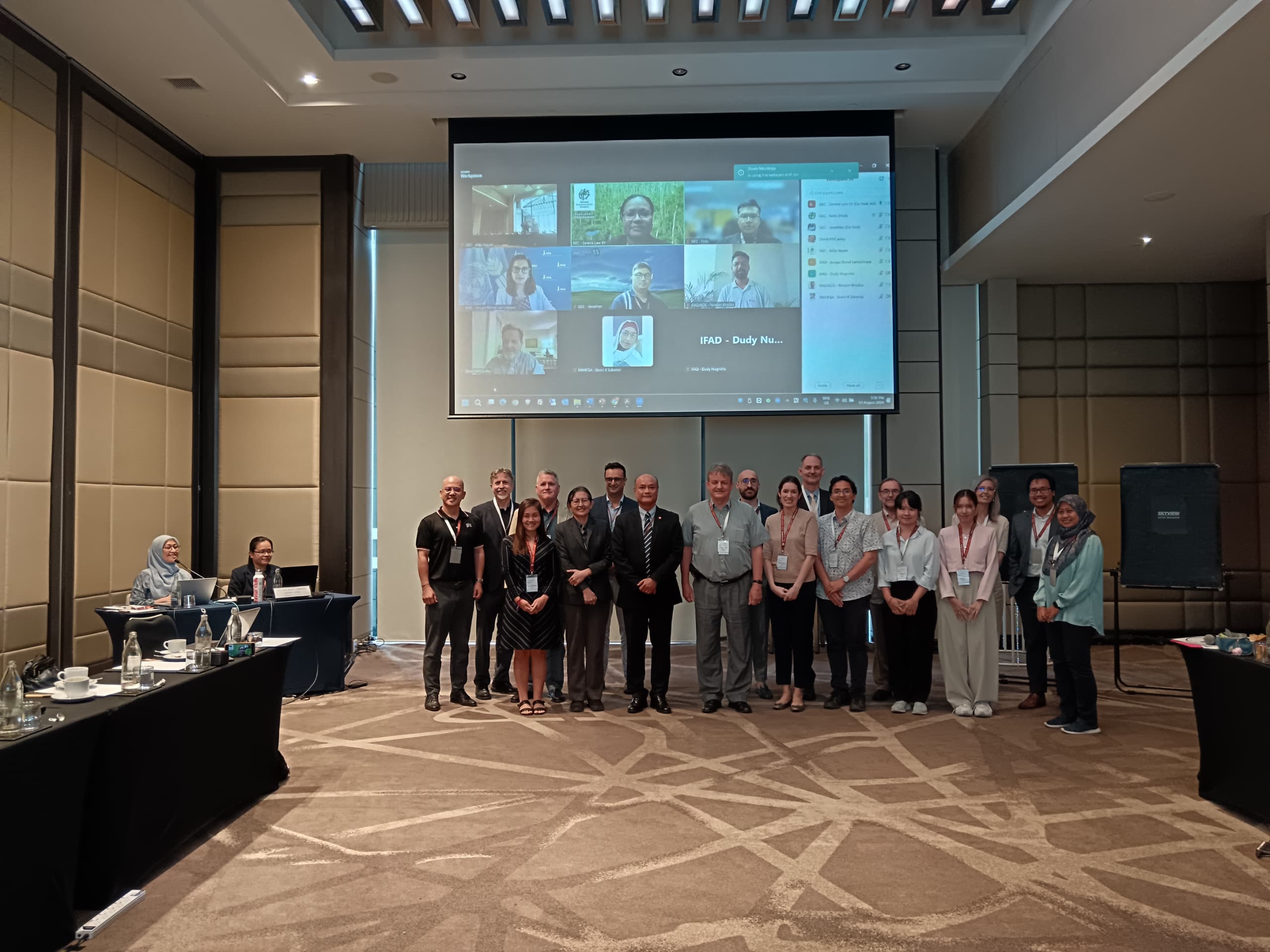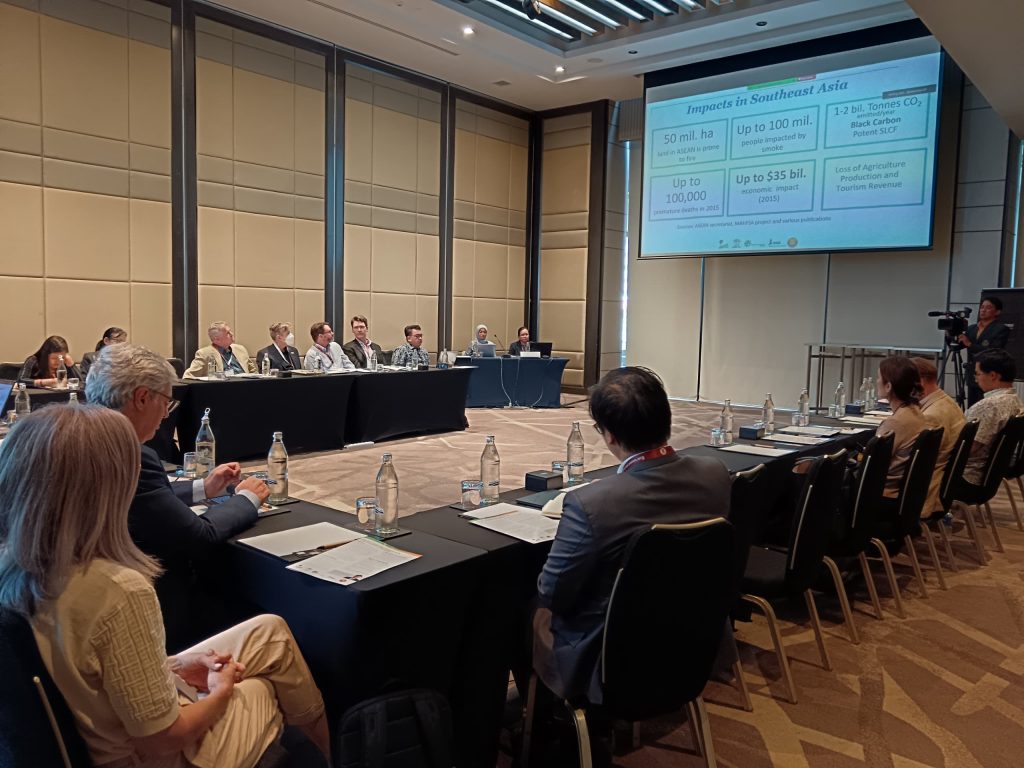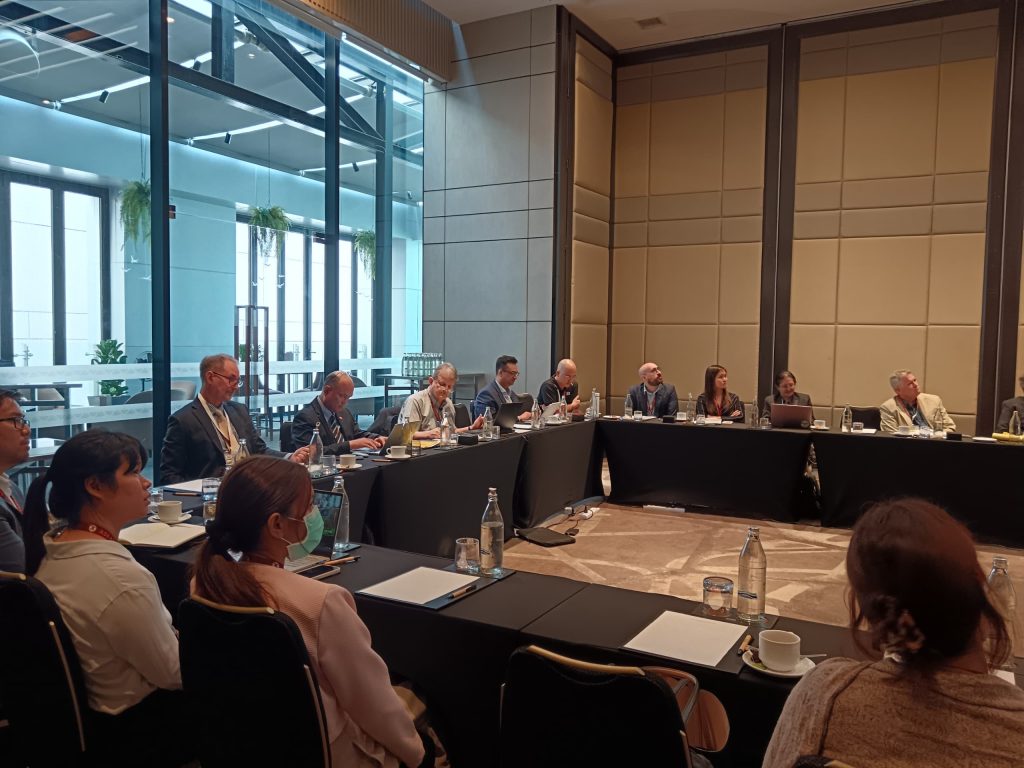September 13, 2024
Location: Bangkok, Thailand

The ASEAN region continues to grapple with the severe impact of transboundary haze, with over 100 million people affected and one to two billion tons of CO2 emitted annually[1], efforts are underway to address these growing concerns.
The ASEAN Investment Framework for Haze-Free Sustainable Land Management (AIF) aims to mobilise an estimated of USD 1.5 billion by 2030 to address the root causes of the transboundary haze across sub-region. Complimenting these efforts, the ASEAN Secretariat with Global Environment Centre (GEC) under IFAD-financed Measurable Action for Haze-Free Sustainable Land Management in Southeast Asia (MAHFSA) Programme has identified a total of USD 1,231,000 million from the 39 ongoing projects and 23 identified pipeline projects aligned with the AIF objectives. This highlights the need for coordinated efforts and resource mobilisation following the endorsement of AIF in August 2023.
The Partners Dialogue on AIF-HFSLM – Sustainable Investment in Tackling Haze for Better Living took place on 13 August 2024, held in parallel with the 9th ASEAN Task Force on Peatlands (ATFP) in Bangkok, Thailand. This Dialogue served as a platform to engage stakeholders, share inputs and explore potential strategies to support the development of the Implementation Plan for the AIF, as well as to highlight ASEAN commitment to enhance investment in sustainable practices. Marking the first event for the AIF since its endorsement, this Dialogue signifies a crucial step toward realising the shared vision of a haze-free and sustainable ASEAN by 2030.
This Dialogue was inaugurated by Mrs. Sunee Sakseau, Director of Foreign Affairs, Department of National Parks, Wildlife and Plant Conservation (DNP), Thailand, who is also the Incoming Chair of the ASEAN Task Force for Peatland (ATFP). In her opening remarks, she highlighted the importance of strong technical and financial support for the ASEAN Member State (AMS) in implementing the haze-free sustainable land management initiatives.
Meanwhile, ASEAN reaffirmed their commitment to supporting the partners of AIF to ensure the smooth coordination from ASEAN perspective. ASEAN Secretariat’s Head of Environment, Dr. Vong Sok reiterate the framework’s 5 broad objectives designed to address peatland and haze-related matter, offering various opportunities for partners to participate according to their interests and priorities. He also expressed his appreciation for the active participation of partners in joining the initiative. AIF aligns with other ASEAN frameworks such as the Second ASEAN Peatland Management Strategy (APMS 2023-2030), the Second ASEAN Cooperation on Transboundary Haze Pollution Control with Means of Implementation (ASEAN Haze-Free Roadmap 2023-2030) and the ASEAN Sustainable Finance Taxonomy. It emphasises sustainable financing, community empowerment and integrated land management.
During the event, Mr. Faizal Parish, Director of GEC and Lead Implementing Partner of AIF, announced that MAHFSA is in the process of drafting the concept for the AIF Implementation Plan and establishing an Ad-hoc Task Force for further engagement with AMS. “The key action is to identify key stakeholders, continuously map ongoing and pipeline finance projects, establish a partnership network and secure additional resources. As part of the next steps, the AIF plan to establish an ASEAN Haze-Free Alliance to bring the non-state actors together and enhance coordination and knowledge exchange,” he said.
The Dialogue’s discussion session was preceded by six presentations from Global Green Growth Institute (GGGI), IFAD, Asian Development Bank (ADB), Sustainable Rice Platform (SRP), USAID Partnerships for Green Investment (PAGI), and The Deutsche Gesellschaft für Internationale Zusammenarbeit GmbH (GIZ-Thailand) presented their ongoing and pipeline projects, highlighting their potential alignment with the AIF.


A total of 35 representatives from 17 international stakeholders and funding partners participated in the Partners Dialogue on AIF – Sustainable Investment in Tackling Haze for Better Living. Some of the key suggestions and recommendations raised by the participants focused on the importance of linking sustainable land management initiatives to prevent duplication and enhance synergy among projects. Participants urged the mobilisation of donor forums and national investment agencies to better coordinate efforts and maximize the impact of available resources. Other points highlighted are challenges in peatland carbon projects and critical role of the ASEAN Secretariat in guiding the AIF initiatives. Another key suggestion included establishing a directory of partners and a registry of projects to ensure transparency and collaboration, as well as strategic use of existing ASEAN mechanisms.
Participants also highlighted the need for additional funding, proposing innovative approach such as utilising the ASEAN Regional Clean Air Fund and establishing a sustainable rice financing facility. Participants also suggested linking the AIF to Partnerships for Green Investment (PAGI), a new USAID-funded project aimed at supporting sustainable land use practices in Southeast Asia, focusing on emissions reductions, climate resilience, biodiversity protection, inclusiveness, and benefit sharing. The participants stressed the importance of engaging a broader range of stakeholders, including urban dwellers in funding mechanisms, which is crucial for the success of these initiatives.
The Dialogue marks a significant milestone in the collaborative efforts to tackle the transboundary haze issue in ASEAN. As the region moves toward a haze-free future by 2030, the commitments made by stakeholders and the active participation of diverse partners demonstrate the importance of unified action. With continued engagement, resource mobilization, and strategic alignment of projects through frameworks like AIF, ASEAN is ready to strengthen its sustainable land management practices and ensure a healthier, haze-free environment for its people. The road ahead requires collective action, innovative solutions, and long-term funding to address the root causes of haze, however this Dialogue has set a promising foundation for transformative impact.
[1] ASEAN Socio Cultural Community (retrieved on 10 September 2024). Haze, retrieved from https://asean.org/our-communities/asean-socio-cultural-community/haze-2/
Share this
